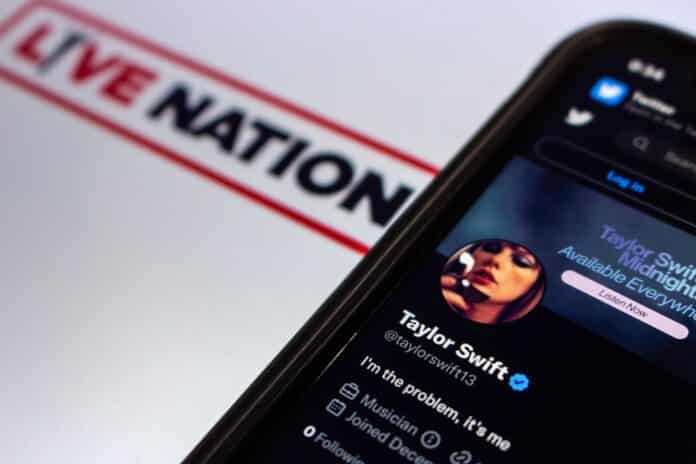Live Nation (LYV) shares are down around 15% from its 2024 peak, largely due to concerns regarding a new antitrust probe. According to reports from the Wall Street Journal, the U.S. Justice Department is gearing up to file an antitrust lawsuit against the owner of Ticketmaster, Live Nation, citing alleged “anticompetitive” practices. This legal action could potentially be initiated as early as next month.
Live Nation has frequently come under public scrutiny for leveraging its dominant position in the live entertainment industry to inflate ticket prices for concerts and other events. In particular, Ticketmaster, a subsidiary of Live Nation, faced backlash in 2022 due to a website malfunction during Taylor Swift’s ‘Eras Tour’ ticket sales, leading to widespread criticism and calls for the breakup of Ticketmaster. Despite these challenges, Ticketmaster achieved record ticket sales in the past year, demonstrating its enduring market presence.
While Live Nation contends that competition within the ticketing industry remains robust, the intensifying debate surrounding its practices has prompted some investors to offload their shares
Live Nation Seeks To Set The Record Straight
Live Nation, the parent company of Ticketmaster, has refrained from commenting publicly on the anticipated antitrust lawsuit but recently countered monopoly allegations through a blog post titled ‘The Truth About Ticket Prices’. In the blog, Live Nation’s Head of Corporate Affairs, Dan Wall, emphasized that Ticketmaster wields minimal influence over ticket prices, attributing pricing decisions primarily to musical artists and venues.
Wall argued that service charges, often perceived as Ticketmaster’s domain, are predominantly determined by concert venues rather than the ticketing platform itself. He asserted that a significant portion of service charge revenue goes to the venues, with Ticketmaster typically receiving a fraction of this fee.
To illustrate this point, the blog provided an example of a 30% service fee, indicating that Ticketmaster’s share is approximately one-fourth of the total charge.
Moreover, the blog highlighted comparisons between Ticketmaster’s commission rates and those of other digital marketplaces, such as StubHub, Uber, and Airbnb, suggesting that Ticketmaster’s share is relatively modest in comparison.
It also underscored the impact of online resale on ticket prices, particularly for highly sought-after events, where reselling platforms play a significant role in driving up prices.
By addressing these points, Live Nation aims to challenge perceptions of Ticketmaster as a monopoly and shed light on the complexities of ticket pricing dynamics within the live entertainment industry.
Wall Street Is Still Very Bullish On LYV
Despite the looming threat of regulatory action, Wall Street research firms have remained steadfast in their bullish outlook on Live Nation.
On Tuesday, Roth MKM reiterated its Buy rating on LYV and set a $120 price target, making it the sixth consecutive firm to express optimism about the stock since the Justice Department’s report surfaced. The revised price targets from these six analysts span from $108 to $130, with the midpoint suggesting a potential upside of around 30%.
Investors are likely to closely monitor Live Nation’s first-quarter earnings call scheduled for May 2nd, seeking insights into how the company addresses the regulatory concerns and its overall performance amid the ongoing scrutiny.


